
Hwange: The Heart of Zimbabwe's Wilderness
Hwange, a town nestled in the western part of Zimbabwe, is a haven for wildlife enthusiasts and nature lovers. The city is best known for the Hwange National Park, the largest game reserve in the country. This vast park is home to one of the biggest elephant populations in the world, offering a unique opportunity to witness these majestic creatures in their natural habitat. Apart from elephants, you can also spot lions, cheetahs, and a variety of bird species, making it a perfect destination for a safari adventure. The town itself offers a glimpse into the local culture and history. You can visit the Hwange Colliery, which is one of the oldest coal mines in Zimbabwe, and learn about its significance to the local economy. For a more relaxed experience, take a stroll through the town and interact with the friendly locals. The market is a great place to find handcrafted souvenirs and taste traditional Zimbabwean dishes. Hwange is conveniently located near Victoria Falls, one of the Seven Natural Wonders of the World. Many tourists choose to combine their visit to Hwange with a trip to the falls, making for an unforgettable Zimbabwean experience. With its rich wildlife, cultural insights, and proximity to other major attractions, Hwange is a must-visit destination for any traveler exploring Zimbabwe.
Local tips in Hwange
- Plan your visit during the dry season (July to October) for the best wildlife viewing opportunities.
- Book your safari tours in advance, especially if you plan to visit during peak season.
- Carry plenty of water and sun protection, as the temperatures can get quite high.
- Consider hiring a local guide to enhance your safari experience with expert knowledge and insights.
- Combine your visit to Hwange with a trip to Victoria Falls for a more comprehensive Zimbabwean adventure.
Hwange: The Heart of Zimbabwe's Wilderness
Hwange, a town nestled in the western part of Zimbabwe, is a haven for wildlife enthusiasts and nature lovers. The city is best known for the Hwange National Park, the largest game reserve in the country. This vast park is home to one of the biggest elephant populations in the world, offering a unique opportunity to witness these majestic creatures in their natural habitat. Apart from elephants, you can also spot lions, cheetahs, and a variety of bird species, making it a perfect destination for a safari adventure. The town itself offers a glimpse into the local culture and history. You can visit the Hwange Colliery, which is one of the oldest coal mines in Zimbabwe, and learn about its significance to the local economy. For a more relaxed experience, take a stroll through the town and interact with the friendly locals. The market is a great place to find handcrafted souvenirs and taste traditional Zimbabwean dishes. Hwange is conveniently located near Victoria Falls, one of the Seven Natural Wonders of the World. Many tourists choose to combine their visit to Hwange with a trip to the falls, making for an unforgettable Zimbabwean experience. With its rich wildlife, cultural insights, and proximity to other major attractions, Hwange is a must-visit destination for any traveler exploring Zimbabwe.
When is the best time to go to Hwange?
Iconic landmarks you can’t miss
Devil's Cataract
Discover the breathtaking beauty of Devil's Cataract, a must-see vista point at Victoria Falls that showcases nature's incredible power and splendor.
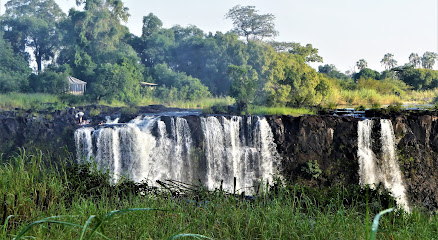
Victoria Falls Bridge
Experience the breathtaking Victoria Falls Bridge, where engineering marvel meets thrilling adventure in the heart of Africa.
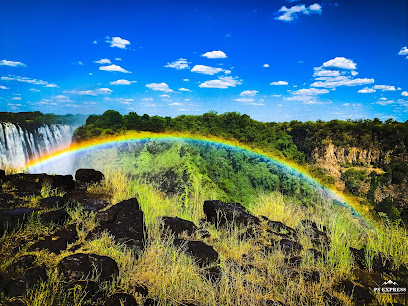
Chinhoyi Caves
Explore the stunning Chinhoyi Caves, a natural marvel in Zimbabwe, featuring breathtaking limestone formations and rich cultural heritage.
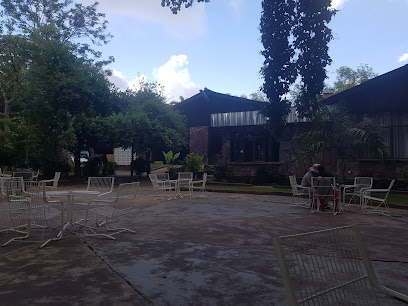
Hwange National Park
Discover the stunning diversity of wildlife and landscapes at Hwange National Park, Zimbabwe's premier national park and a must-visit for nature lovers.
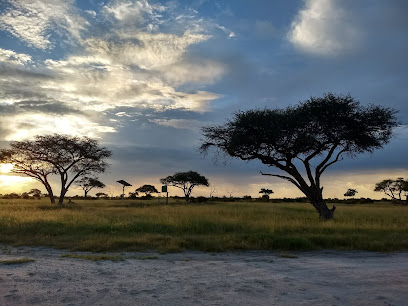
Matobo National Park
Explore Matobo National Park: A UNESCO World Heritage site boasting stunning landscapes, rich wildlife, and ancient cultural heritage in Zimbabwe.
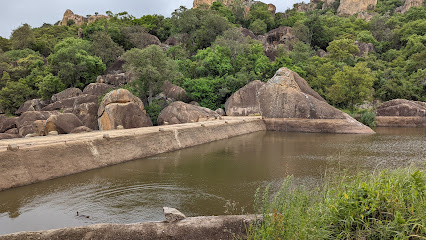
Victoria Falls Crocodile Park
Discover the captivating world of reptiles at Victoria Falls Crocodile Park, where nature and adventure come together in a stunning setting.
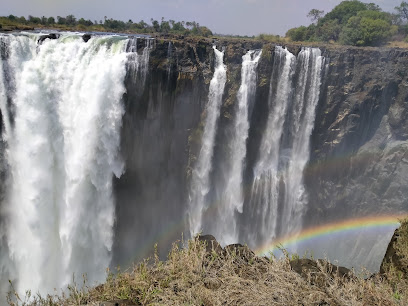
Hwange Safari Lodge
Experience the magic of Hwange National Park at Hwange Safari Lodge, where luxury meets adventure in the heart of Zimbabwe's wildlife sanctuary.

Mana Pools National Park
Discover the pristine wilderness of Mana Pools National Park, a UNESCO World Heritage Site filled with diverse wildlife and stunning landscapes.
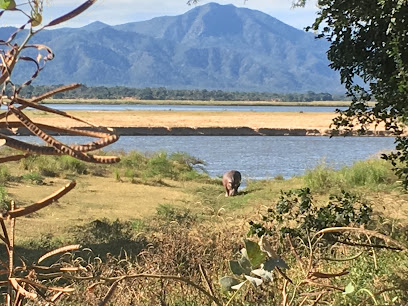
Hwange Main Camp
Experience the magic of Hwange Main Camp, where wildlife adventures meet stunning natural landscapes in Zimbabwe's premier national park.
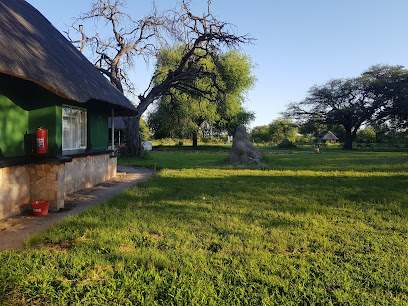
Khami Ruins
Explore the Khami Ruins, a UNESCO World Heritage site, and witness the ancient stone architecture of Zimbabwe's past.
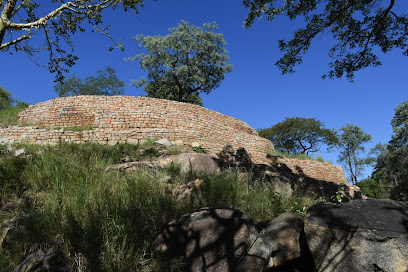
The Big Tree (Victoria Falls)
Experience the natural wonder of The Big Tree, a centuries-old Baobab near Victoria Falls, perfect for relaxation and exploration.
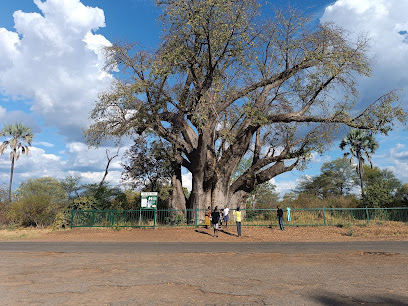
The Elephant Camp
Discover the heart of Africa at The Elephant Camp, where luxury meets wildlife conservation in the breathtaking Victoria Falls National Park.
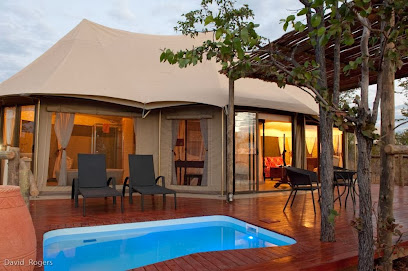
Robins Camp
Experience the tranquil beauty of Robins Camp, an idyllic lodge in Zimbabwe where comfort meets the wild heart of Africa.
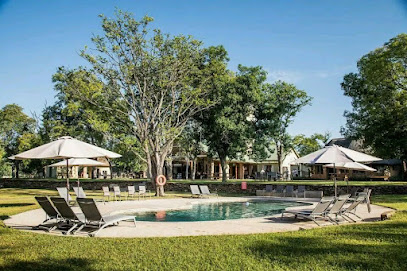
Gwango Heritage Resort
Immerse yourself in nature at Gwango Heritage Resort, a serene retreat in Hwange National Park, perfect for wildlife enthusiasts and relaxation seekers alike.

Four Fingers Book Cafe
Experience the charm of Four Fingers Book Cafe in Hwange, where literature meets culinary delights in a cozy atmosphere.
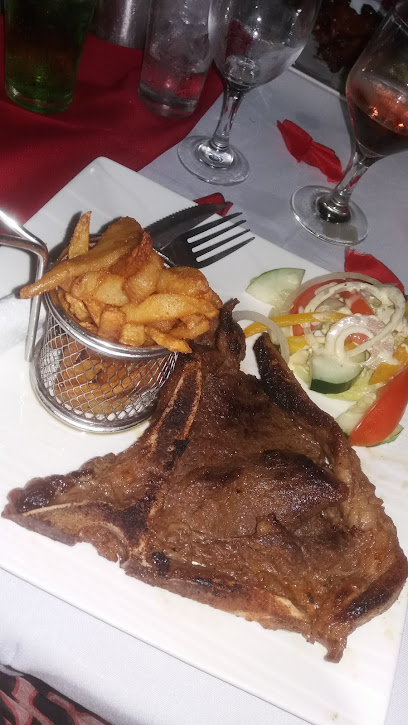
Unmissable attractions to see
Hwange National Park
Explore the untamed beauty of Hwange National Park, Zimbabwe's premier wildlife sanctuary, teeming with elephants, lions, and breathtaking landscapes.
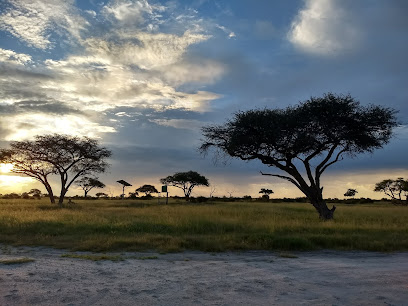
Hwange Zoo Aviary Nature Park
Explore Hwange Zoo Aviary Nature Park, a serene bird watching haven where wildlife thrives and nature's beauty enchants visitors of all ages.
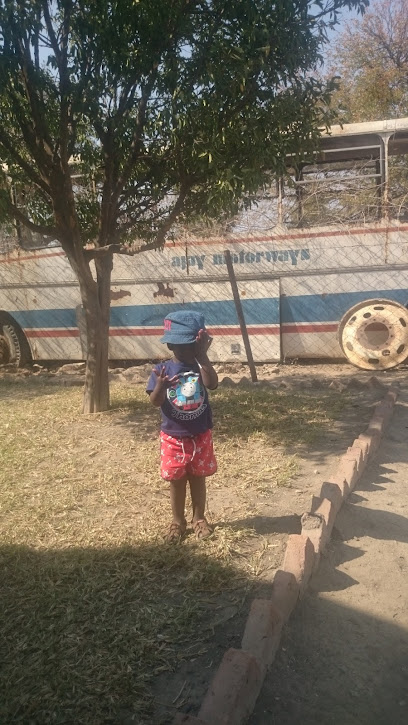
Insomnia park
Discover the serene beauty of Insomnia Park in Hwange, Zimbabwe - a tranquil escape for nature lovers and adventure seekers alike.
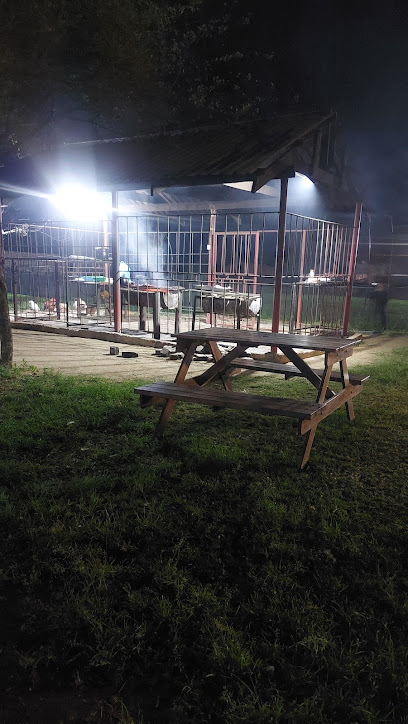
Kalope Dam
Explore Kalope Dam, a tranquil oasis in Hwange, perfect for nature lovers and those seeking peace amidst stunning landscapes and wildlife.
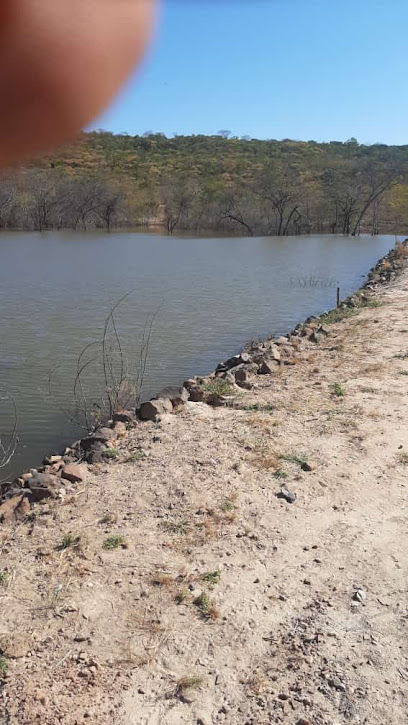
Baobab Tree
Discover the iconic Baobab Tree in Hwange, Zimbabwe, a natural wonder steeped in culture and history, perfect for photographers and nature lovers alike.
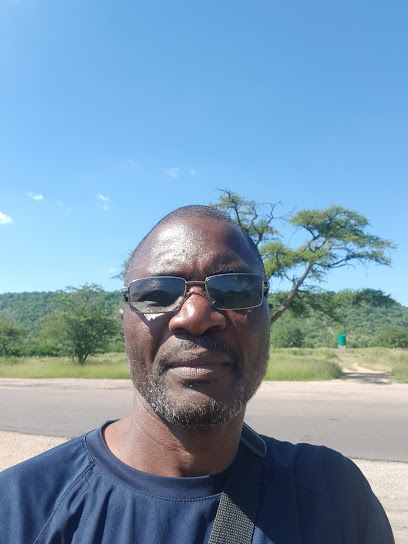
Lukosi River Bridge
Discover the breathtaking beauty of the Lukosi River Bridge in Hwange, Zimbabwe, a must-visit attraction for nature lovers and photographers alike.
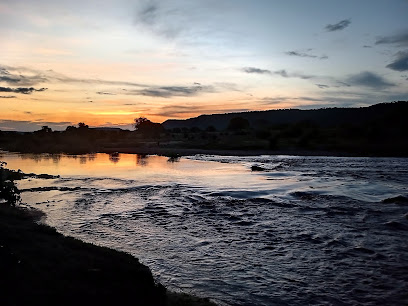
Mopani tree
Explore the enchanting Mopani Tree in Hwange, a symbol of resilience and beauty in Zimbabwe's stunning landscapes, perfect for nature lovers and adventurers.

Lay By
Explore Lay By in Hwange – a serene tourist attraction showcasing Zimbabwe's breathtaking landscapes and wildlife diversity.

Mpongola River Mini Falls
Experience the serene beauty of Mpongola River Mini Falls, a hidden gem in Hwange, perfect for relaxation and nature photography.

Mpongola Riversand
Explore the breathtaking beauty of Mpongola Riversand in Hwange, Zimbabwe, where nature's tranquility meets adventure in stunning landscapes.

Mpongola Lay By
Explore the tranquil beauty of Mpongola Lay By, a serene retreat in Hwange, perfect for nature lovers and adventurers alike.

Hwange national park
Explore Hwange National Park, Zimbabwe's largest wildlife sanctuary, where adventure and breathtaking nature await every traveler.

Gamba Pool
Discover Gamba Pool in Hwange, a tranquil oasis perfect for relaxation and wildlife exploration amidst Zimbabwe's breathtaking landscapes.

Big Baobab Tree
Explore the magnificent Big Baobab Tree in Hwange, a natural wonder and symbol of Zimbabwe's rich heritage and biodiversity.

Bhemingham
Explore Bhemingham, a serene tourist attraction in Hwange, Zimbabwe, where nature and culture harmoniously blend for an unforgettable experience.

Essential places to dine
Chicken Inn
Discover delicious fast food delights at Chicken Inn in Hwange—where every meal is a tasty adventure.
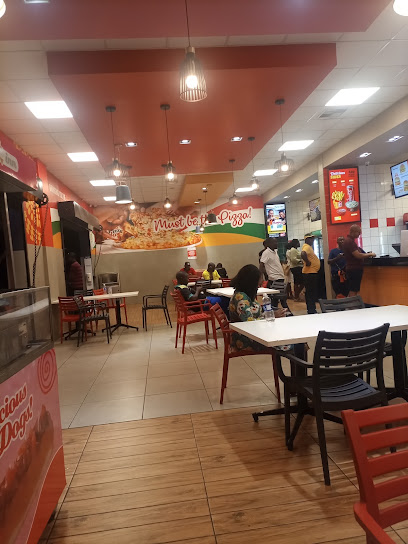
Four Fingers Book Cafe
Discover the charm of Four Fingers Book Cafe in Hwange - where literary passion meets culinary delight in a cozy atmosphere.
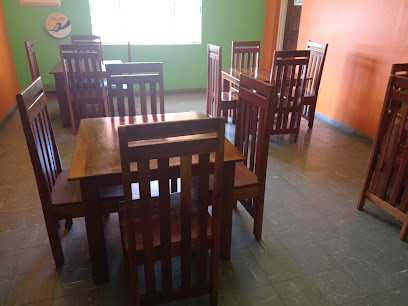
Hwange Main Camp Restaurant
Experience authentic Zimbabwean cuisine at Hwange Main Camp Restaurant surrounded by stunning wildlife views.
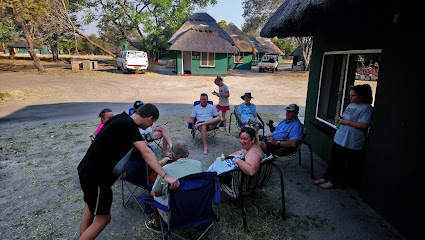
Gajitunda Beer Hall
Discover the vibrant atmosphere of Gajitunda Beer Hall in Hwange, where local brews meet warm hospitality in an unforgettable experience.
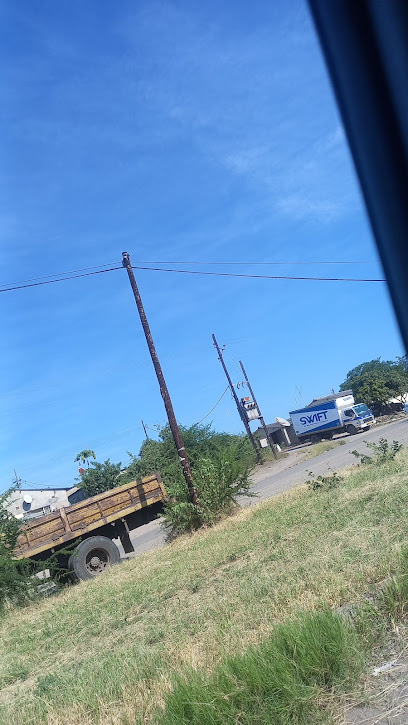
Shadows Grill House
Discover delightful family-friendly dining at Shadows Grill House in Hwange, where delicious meals meet warm hospitality amidst stunning surroundings.
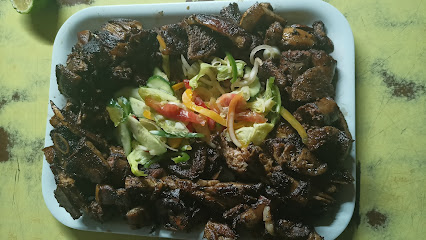
Sports Cafe
Discover Hwange's vibrant sports scene at Sports Cafe - where delicious food meets thrilling live sports action.
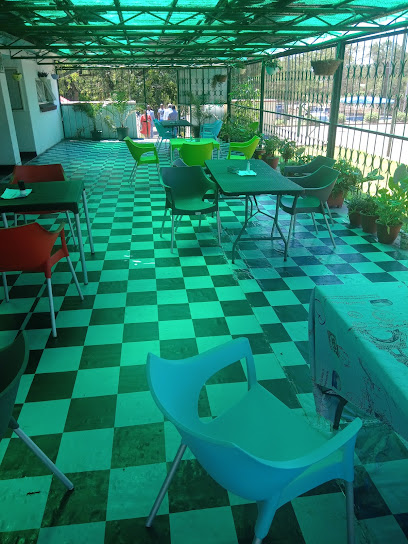
Pizza Inn
Discover delicious pizzas made with fresh ingredients at Pizza Inn in Hwange – the perfect stop for travelers craving Italian flavors.

Upshot Mabhiza
Discover authentic grilled flavors at Upshot Mabhiza in Hwange - a must-visit for food lovers seeking local culinary delights.
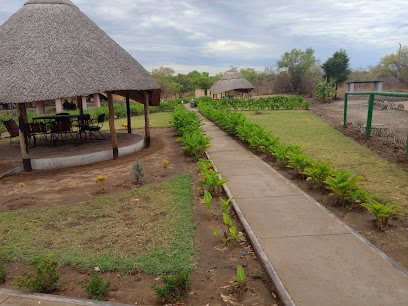
Dzimahwe lounge
Experience authentic Zimbabwean cuisine at Dzimahwe Lounge in Hwange - where every meal tells a story of local culture.
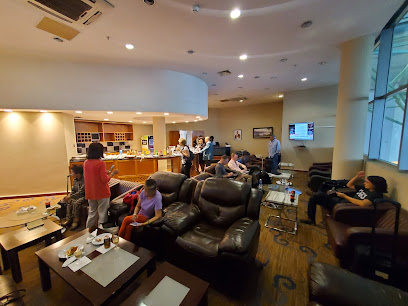
Café Hwange
Discover delightful flavors at Café Hwange, where local cuisine meets warm hospitality amidst the beauty of Zimbabwe.
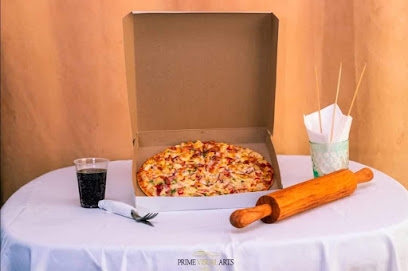
Afro Inn Takeaways
Experience authentic Zimbabwean cuisine at Afro Inn Takeaways in Hwange – where every meal tells a story.
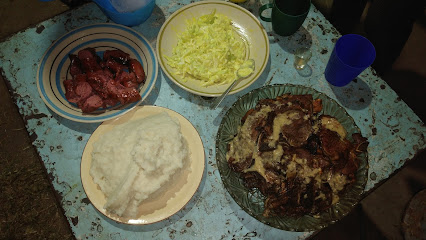
Rail View Restuarant
Experience authentic Zimbabwean cuisine with stunning views at Rail View Restaurant in Hwange.

Chye's Chicken Hut & Spice World
Discover the vibrant flavors of Zimbabwe at Chye's Chicken Hut & Spice World in Hwange – where every dish tells a story.

Grill it Leisure Corner Restuarant
Experience authentic Zimbabwean cuisine at Grill It Leisure Corner Restaurant in Hwange - where flavor meets hospitality.

The Spot Restaurant
Experience the authentic taste of Zimbabwe at The Spot Restaurant in Hwange – where flavor meets culture.

Markets, malls and hidden boutiques
TM Supermarket
Explore the essence of Hwange at TM Supermarket, your go-to spot for local products and everyday essentials.
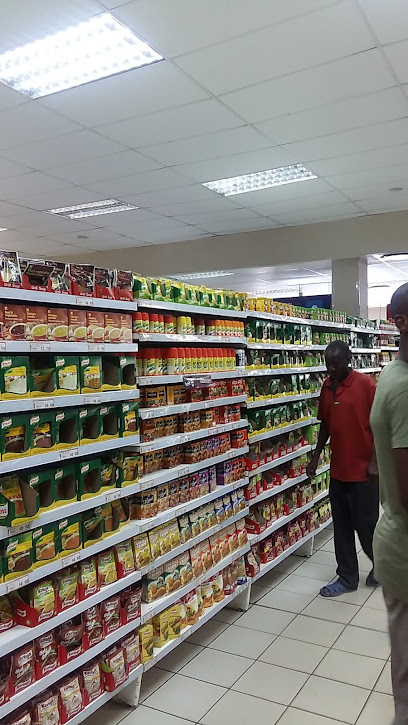
Ok Supermarket
Explore an array of local and international products at Ok Supermarket, a vibrant shopping destination in Hwange, Zimbabwe.
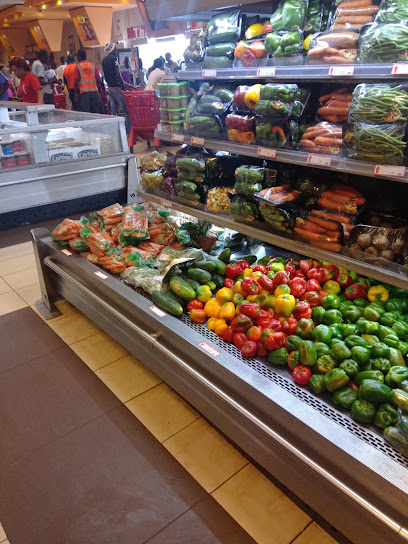
Zapalala Supermarket
Discover a slice of local life at Zapalala Supermarket in Hwange, where shopping meets culture and community spirit.

Bata Hwange
Discover stylish clothing and accessories at Bata Hwange, where fashion meets the beauty of Zimbabwe's landscapes.
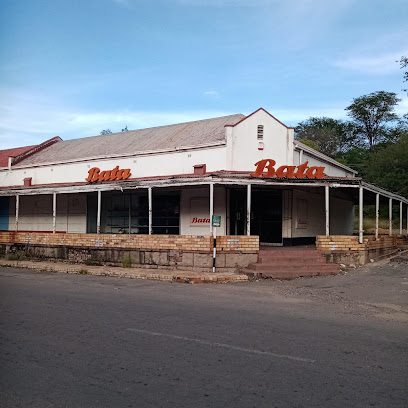
Empumalanga Shopping Centre
Explore the Empumalanga Shopping Centre in Hwange for a unique blend of local shopping, dining, and cultural experiences perfect for tourists.

Prime Dry Cleaners Hwange
Discover the essential laundry service at Prime Dry Cleaners in Hwange, perfect for freshening up your travel wardrobe efficiently and effectively.
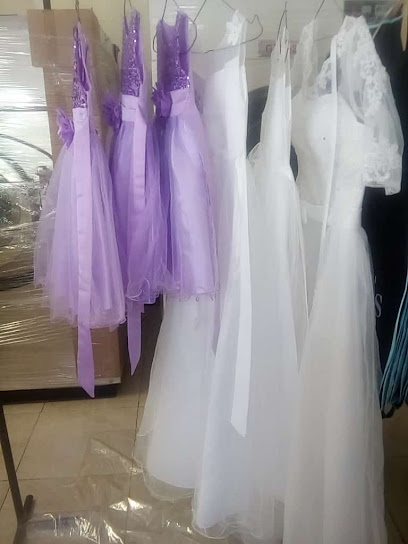
EDGARS STORES
Discover the vibrant fashion scene at Edgars Stores in Hwange, where quality meets affordability in a welcoming shopping environment.
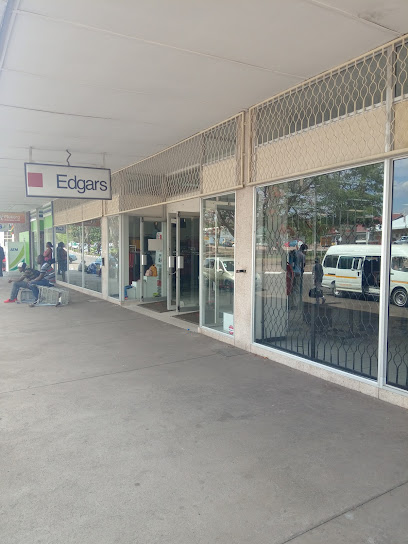
ZEDTC Hwange CSC
Explore the best electronics store in Hwange, where technology meets convenience for every traveler seeking quality gadgets and accessories.

TV Sales and Home
Discover quality furniture and home decor at TV Sales and Home in Hwange, where style meets functionality for every space.
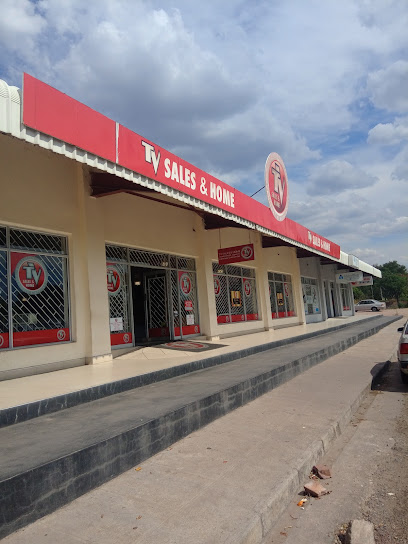
DRC shops
Experience the vibrant local culture and unique crafts at DRC shops in Hwange, a must-visit destination for every traveler.

Power Sales
Discover local fashion and unique souvenirs at Power Sales in Hwange, your go-to clothing store for vibrant styles and friendly service.
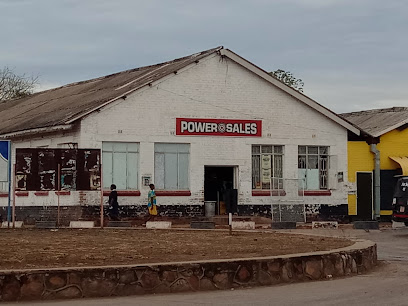
Mr Fix it Hardware
Explore Mr Fix It Hardware in Hwange for all your DIY needs, offering a wide range of tools and supplies for every project.
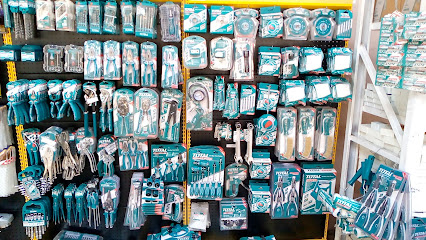
Priceline Pharmacy Hwange
Visit Priceline Pharmacy Hwange for essential health supplies and exceptional service during your travels in Zimbabwe.
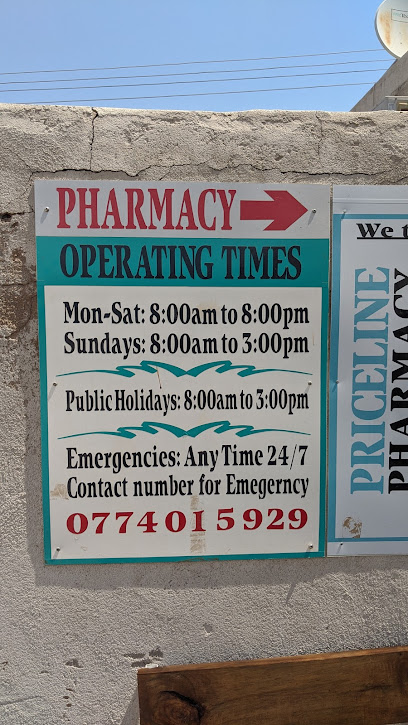
Pamuzi general dealers
Discover the heart of Hwange at Pamuzi General Dealers, your go-to grocery store for local essentials and authentic Zimbabwean products.

Image creations boutique
Explore the vibrant culture of Hwange at Image Creations Boutique, where every handcrafted item tells a story of Zimbabwean artistry.
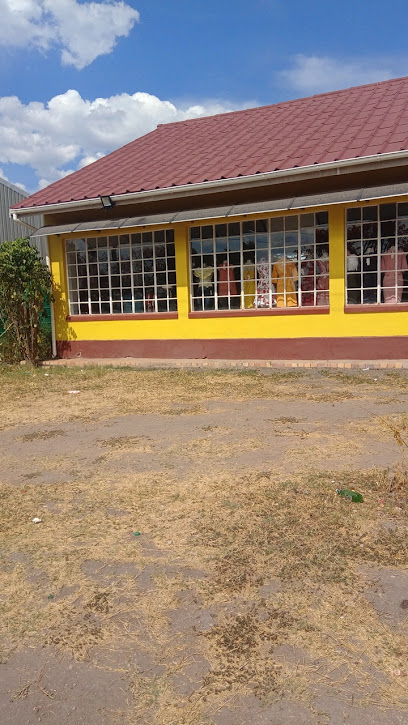
Essential bars & hidden hideouts
The River Brewing Company
Discover local craft beers with breathtaking views at The River Brewing Company in Victoria Falls, a must-visit bar for every traveler.
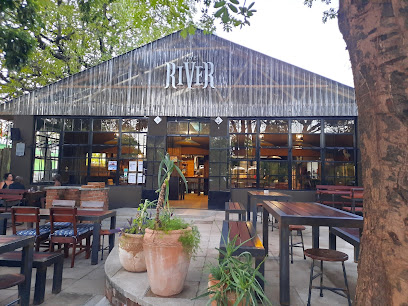
Baobab Hotel
Discover the charm of Hwange at Baobab Hotel, your gateway to Zimbabwe's breathtaking wildlife and natural beauty.
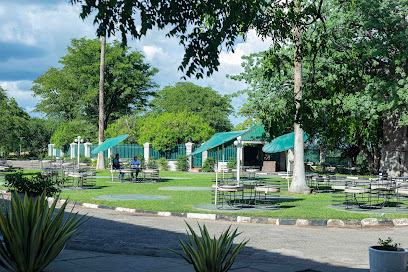
Ok Supermarket
Explore local goods and unique souvenirs at Ok Supermarket in Hwange, offering a taste of Zimbabwean culture and convenience for tourists.
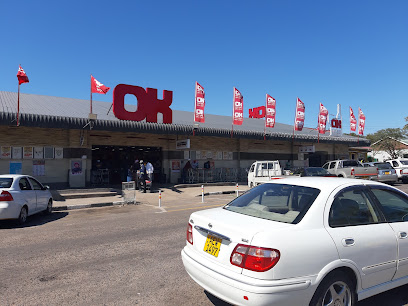
ZPC Social Club
Experience the charm of Hwange at ZPC Social Club, a cozy guest house with a local vibe and affordable amenities.
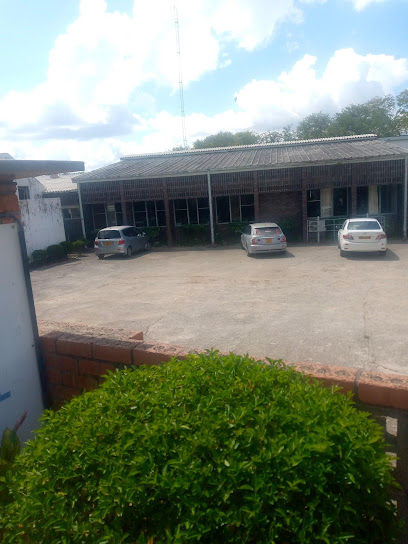
Beerbab Brewpub and Brewery
Discover the best of Zimbabwean craft beer and pub fare at Beerbab Brewpub and Brewery in Victoria Falls.

Hwange Cricket Club
Experience the vibrant local culture at the Hwange Cricket Club, a cocktail bar perfect for relaxation and socializing with locals.
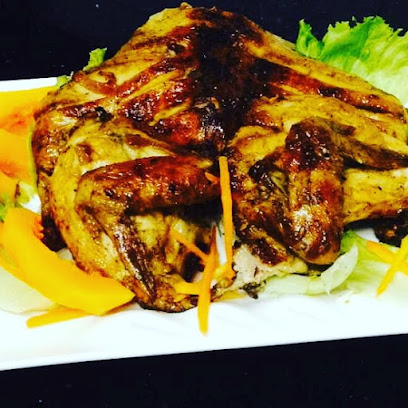
Vic Falls Boat Club
Discover the vibrant atmosphere and stunning views at Vic Falls Boat Club, a top destination for relaxation and adventure near Victoria Falls.
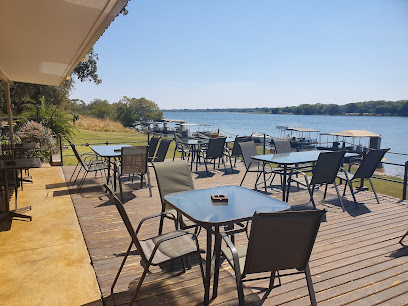
Colliery Club
Discover the Colliery Club in Hwange - A vibrant sports hub where locals and visitors mingle in a lively atmosphere filled with camaraderie and community spirit.
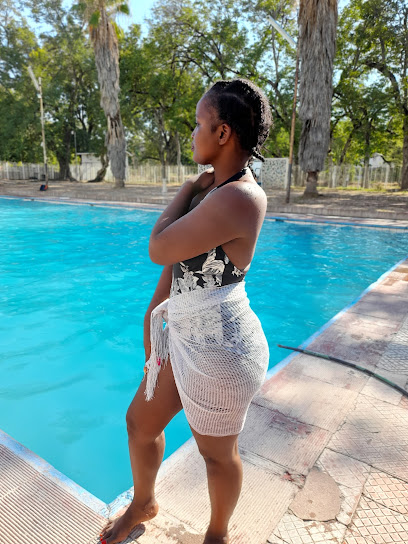
Gajitunda Beer Hall
Discover the lively atmosphere and local flavors at Gajitunda Beer Hall in Hwange, where culture and camaraderie flow with every pint.
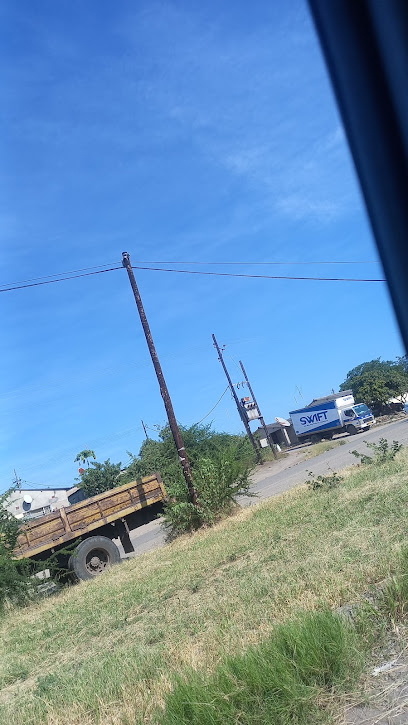
Tennis Club
Experience the vibrant atmosphere of the Tennis Club in Hwange, where sports and community spirit come together in a beautiful setting.
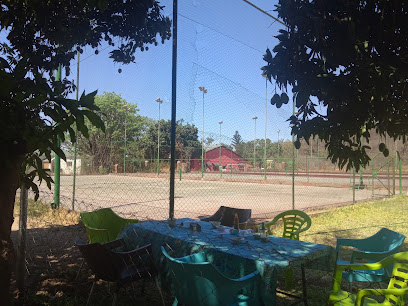
El Dorado Rock Park
Experience the laid-back charm of El Dorado Rock Park in Hwange, where local culture and stunning views create an unforgettable escape.
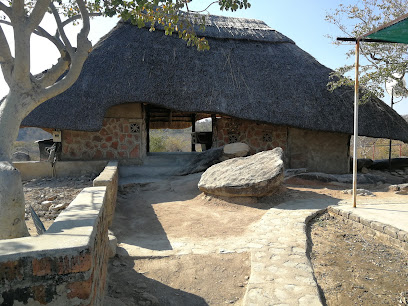
Dete Cocktail bar
Discover the lively Dete Cocktail Bar, a vibrant beer hall in Dete offering a rich selection of drinks and a warm, welcoming atmosphere.
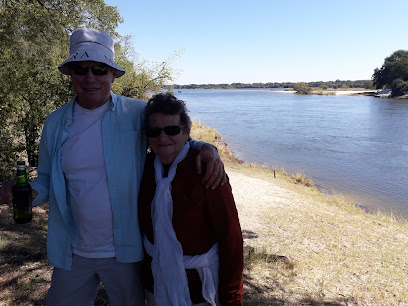
Sports Cafe
Discover the vibrant Sports Cafe in Hwange, where culinary delights meet thrilling sports in a lively setting.
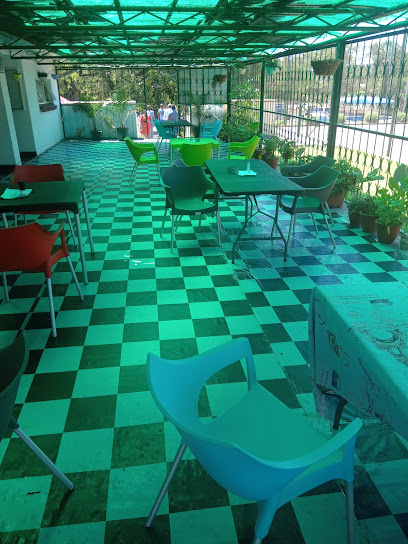
Upshot Mabhiza
Discover the vibrant flavors of Zimbabwean cuisine at Upshot Mabhiza, a grill haven in Hwange offering authentic dishes in a welcoming atmosphere.
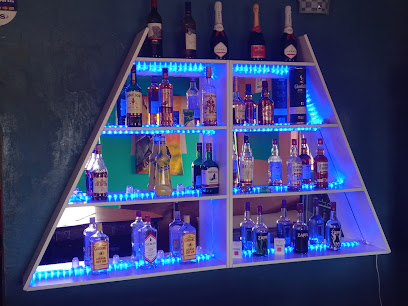
Tshanini Bar
Experience the lively atmosphere of Tshanini Bar, a local beer hall in Dete, where refreshing drinks and vibrant culture come together.
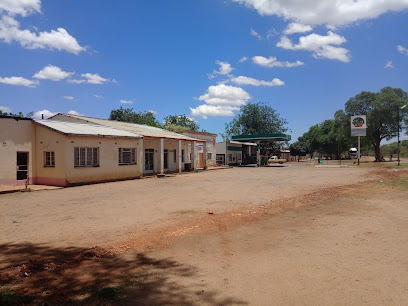
Local Phrases
-
- HelloSalibonani
[sa-lee-boh-nah-nee] - GoodbyeHamba kahle
[ham-bah kah-leh] - YesYebo
[yeh-boh] - NoCha
[chah] - Please/You're welcomeNgiyacela
[nee-yah-ceh-lah] - Thank youNgiyabonga
[nee-yah-bohn-gah] - Excuse me/SorryNgiyaxolisa
[nee-yah-hoh-lee-sah] - How are you?Unjani?
[oon-jah-nee] - Fine. And you?Ngiyaphila. Wena?
[nee-yah-pee-lah. weh-nah] - Do you speak English?Ukhuluma isiNgisi?
[ooh-khoo-loo-mah ee-see-ngi-see] - I don't understandAngazi
[ahn-gah-zee]
- HelloSalibonani
-
- I'd like to see the menu, pleaseNgiyafuna ukubona imenyu, ngiyacela
[nee-yah-foo-nah oo-koo-boh-nah ee-meh-nyoo, nee-yah-ceh-lah] - I don't eat meatAngithi ngidla inyama
[ahn-gee-tee ngee-dlah ee-nyah-mah] - Cheers!Salut
[sah-loot] - I would like to pay, pleaseNgiyafuna ukulipa, ngiyacela
[nee-yah-foo-nah oo-koo-lee-pah, nee-yah-ceh-lah]
- I'd like to see the menu, pleaseNgiyafuna ukubona imenyu, ngiyacela
-
- Help!Siza!
[see-zah] - Go away!Hamba!
[ham-bah] - Call the Police!Vula amaphepha!
[voo-lah ah-mah-pheh-pah] - Call a doctor!Vula umklamo!
[voo-lah oom-klah-moh] - I'm lostNgizohlupheka
[nee-zoh-lu-pheh-kah] - I'm illNgiphilile
[nee-pee-lee-leh]
- Help!Siza!
-
- I'd like to buy...Ngiyafuna ukuthenga...
[nee-yah-foo-nah oo-koo-ten-gah] - I'm just lookingNgicabanga kuphela
[nee-gah-bahn-gah koo-peh-lah] - How much is it?Yimalini?
[yee-mah-lee-nee] - That's too expensiveLokhu kudinga amanzi
[loh-koo koo-deen-gah ahm-zah-nee] - Can you lower the price?Ungangisizele ngephahla?
[oon-gahn-gee-see-zeh-leh ngeh-pah-lah]
- I'd like to buy...Ngiyafuna ukuthenga...
-
- What time is it?Ngubani isikhathi?
[ngoo-bah-nee ee-see-kah-tee] - It's one o'clockKusasa kuyisikhombisa
[koo-sah-sah koo-yee-see-khohm-bee-sah] - Half past (10)Kwesikunye neyishumi
[kweh-see-koo-nyeh neh-yee-shoo-mee] - MorningEbusuku
[eh-boo-soo-koo] - AfternoonEmini
[eh-mee-nee] - EveningSikathi esihambisana
[see-kah-tee eh-see-hahm-bee-sah-nah] - YesterdayIzolo
[ee-zoh-loh] - TodayNamhlanje
[nahm-hlahn-jeh] - TomorrowKusasa
[koo-sah-sah] - 1Kunye
[koo-nyeh] - 2Kwimbini
[kwee-mbee-nee] - 3Kwitatu
[kwee-tah-too] - 4Kwine
[kwee-neh] - 5Kwakhulu
[kwah-khoo-loo] - 6Isithupha
[ee-see-too-pah] - 7Isikhombisa
[ee-see-khohm-bee-sah] - 8Isishiyagalombili
[ee-see-shee-yah-gah-lohm-bee-lee] - 9Isishiyagalolunye
[ee-see-shee-yah-gah-loh-loo-nyeh] - 10Isishiyagalombili
[ee-see-shee-yah-gah-lohm-bee-lee]
- What time is it?Ngubani isikhathi?
-
- Where's a/the...?Kuphi indawo...?
[koo-pee een-dah-woh] - What's the address?Iyiphi indawo?
[ee-yee-pee een-dah-woh] - Can you show me (on the map)?Ungangithumele (endaweni)?
[oon-gahn-gee-too-meh-leh ehn-dah-weh-nee] - When's the next (bus)?Kungani isikhathi esizayo (ibhasi)?
[koo-ngah-nee ee-see-kah-tee eh-see-zah-yoh ee-bhah-see] - A ticket (to ....)Iqala (ku ....)
[ee-kah-lah koo]
- Where's a/the...?Kuphi indawo...?
History of Hwange
-
Hwange, formerly known as Wankie, has its roots deeply entrenched in the history of the Nambya people. The name Hwange is derived from Chief Hwange, a prominent leader of the Nambya tribe, who played an essential role in the early settlement of the region. The area has been inhabited for centuries, with archaeological evidence suggesting early human activity dating back to the Stone Age.
-
The colonial era brought significant changes to Hwange. In the early 20th century, British settlers came to the region, drawn by its rich natural resources and strategic location. In 1929, Hwange National Park was established, initially named Wankie Game Reserve. It was designated to protect the area's diverse wildlife, including elephants, lions, and a variety of bird species. The park is now the largest game reserve in Zimbabwe, covering approximately 14,651 square kilometers.
-
One of the most tragic events in Hwange's history occurred on June 6, 1972, known as the Wankie Colliery Disaster. An underground explosion at the Wankie coal mine, one of Zimbabwe's largest, resulted in the death of 426 miners. This disaster remains one of the worst mining accidents in the history of Southern Africa and had a profound impact on the local community and the mining industry in the region.
-
After Zimbabwe gained independence in 1980, Hwange continued to develop both as a town and a conservation area. The government, along with various international organizations, has invested in conservation efforts to protect the park's unique biodiversity. Anti-poaching measures, community engagement, and sustainable tourism practices have been implemented to ensure the long-term viability of Hwange National Park as a haven for wildlife and a significant economic resource for the region.
-
The Nambya people, who have lived in the Hwange region for centuries, have a rich cultural heritage. Traditional practices, folklore, music, and dance are integral to their way of life. The Nambya language, though endangered, is still spoken by a small population. Efforts are being made to preserve Nambya culture through education and cultural programs, highlighting the importance of maintaining cultural identity in the face of modernization.
-
Today, Hwange is renowned for its eco-tourism opportunities. Visitors from around the world come to experience the breathtaking landscapes, abundant wildlife, and rich cultural experiences. Hwange National Park offers a range of activities, including game drives, walking safaris, and bird watching. The town of Hwange serves as a gateway to the park, providing accommodations and amenities to tourists while maintaining a close-knit community atmosphere.
Hwange Essentials
-
Hwange is accessible by air and road. The nearest airport is Victoria Falls International Airport (VFA), which is about 100 kilometers from Hwange. From the airport, you can hire a taxi or rent a car to drive to Hwange. Alternatively, you can take a bus from major cities like Harare or Bulawayo to Hwange. Train services are also available from Bulawayo to Hwange, offering a scenic journey through Zimbabwe's landscapes.
-
Within Hwange, transportation options include taxis, rental cars, and guided tours. Taxis are readily available and can be booked in advance or hailed on the street. Car rentals are convenient for those who wish to explore the area at their own pace. Guided tours are recommended for visiting Hwange National Park, as they provide expert knowledge and enhance the safari experience.
-
The official currency in Zimbabwe is the Zimbabwean Dollar (ZWL), but the US Dollar (USD) is widely accepted. Credit cards are accepted in most hotels, restaurants, and larger shops, but it is advisable to carry cash, especially for transactions in smaller establishments and markets. ATMs are available, but they may not always be reliable, so it's best to withdraw sufficient cash in major cities before heading to Hwange.
-
Hwange is generally a safe destination for tourists. However, standard precautions should be taken. Avoid walking alone at night and be cautious of pickpockets in crowded areas. There are no specific high-crime areas targeting tourists, but staying vigilant and aware of your surroundings is always advisable. Keep valuables secure and avoid displaying expensive items.
-
In case of emergency, dial 999 for immediate assistance. Medical facilities are available in Hwange, but they may be limited, so having travel insurance that covers medical emergencies is recommended. For minor health issues, there are pharmacies where you can purchase over-the-counter medications. It is also advisable to carry a basic first aid kit.
-
Fashion: Do dress modestly, especially in rural areas and when visiting religious or cultural sites. Avoid wearing overly revealing clothing. Religion: Do respect local customs and religious practices. Public Transport: Do be polite and respectful. Offering your seat to elderly passengers is a sign of respect. Greetings: Do greet people with a handshake. A warm smile and a friendly greeting go a long way. Eating & Drinking: Do try local cuisine and accept food offerings graciously. Don't waste food, as it is considered impolite.
-
To experience Hwange like a local, visit local markets and interact with residents. They are often friendly and willing to share stories about the area's history and culture. Don't miss out on visiting Hwange National Park for a safari experience. For a unique encounter, consider staying at one of the lodges within the park, which offer exceptional wildlife viewing opportunities. Engage with local guides to learn more about the flora and fauna of the region.
Trending Landmark in Hwange
-
Devil's Cataract
-
Victoria Falls Bridge
-
Chinhoyi Caves
-
Hwange National Park
-
Matobo National Park
-
Victoria Falls Crocodile Park
-
Hwange Safari Lodge
-
Mana Pools National Park
-
Hwange Main Camp
-
Khami Ruins
-
The Big Tree (Victoria Falls)
-
The Elephant Camp
-
Robins Camp
-
Gwango Heritage Resort
-
Four Fingers Book Cafe
Nearby Cities to Hwange
-
Things To Do in Victoria Falls
-
Things To Do in Livingstone
-
Things To Do in Kasane
-
Things To Do in Katima Mulilo
-
Things To Do in Kariba
-
Things To Do in Francistown
-
Things To Do in Gweru
-
Things To Do in Maun
-
Things To Do in Lusaka
-
Things To Do in Chinhoyi
-
Things To Do in Selebi-Phikwe
-
Things To Do in Serowe
-
Things To Do in Palapye
-
Things To Do in Kabwe
-
Things To Do in Harare










